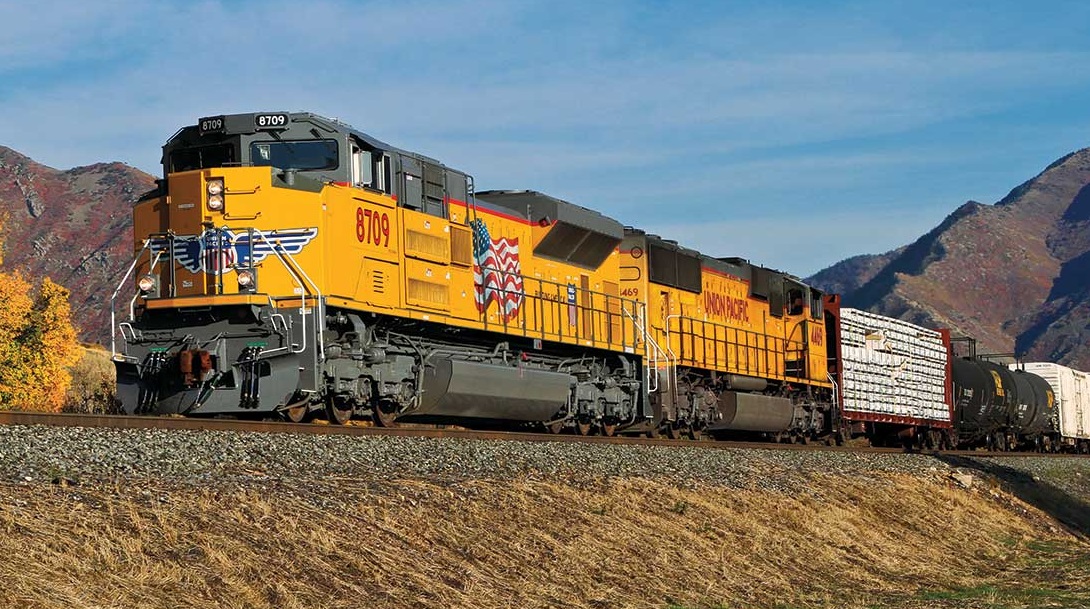Union Pacific Issues $600 Million Green Bond to Fund Decarbonization Investments
Railroad company Union Pacific announced today the completion of a $600 million green bond issuance, with proceeds aimed at funding its decarbonize and emissions reduction investments.
The green bond offering follows the announcement late last year by Union Pacific of a commitment to achieve net zero greenhouse gas emissions by 2050, and the publication of its climate action plan, detailing the initiatives and actions it will take in order to achieve its GHG emissions reduction goals. The company has also set goals, approved by the Science Based Targets initiative (SBTi) to reduce its absolute Scope 1 and 2 GHG emissions and Scope 3 GHG emissions on a well-to-wheel basis from locomotive operations 26% by 2030.
Some of the actions outlined in the climate action plan included improving operational efficiency through investments in a more efficient locomotive fleet and energy management technology, the promotion of rail as the environmentally preferable surface transportation solution, and the exploration of emerging supply chain circularity opportunities.
Lance Fritz, Union Pacific Chairman, President and CEO, said:
“When it comes to finding ways to decarbonize our footprint, every idea is on the table. We are acting now on our most promising avenues to make progress toward reducing greenhouse gas emissions and investing in technology to support future initiatives.”
Union Pacific recently released its Green Financing Framework, outlining eligible categories from investment from its issuances of green bonds. Use of proceeds may include investments in new rolling stock, vehicles and equipment, or upgrades to existing rolling stock, circular economy investments, solutions or equipment that reduce energy consumption or support energy conservation, renewable energy investments or power purchase agreements, sustainable water and wastewater management investments, as well as expenditures in nature-based solutions that protect, restore, or increase natural ecosystems.
According to the framework, the company may not use green bond proceeds for infrastructure and rolling stock for railway lines dedicated to the transportation of fossil fuels.
Beth Whited, Executive Vice President – Sustainability and Strategy at Union Pacific, said:
“Union Pacific helped shape our nation’s history and we’re excited to be a leader on the path to a more sustainable future.”





